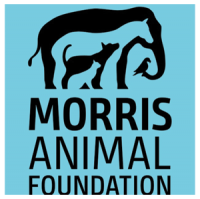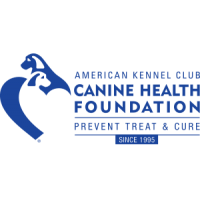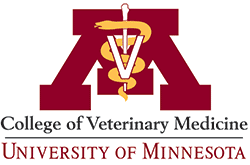Hemangiosarcoma and Golden Retrievers
Morris Animal Foundation answers questions about hemangiosarcoma
May 21, 2020
 "This is a webinar which answers some questions about hemangiosarcoma, a cancer dreaded by all golden retriever owners and veterinarians. Dr. Kelly Diehl, Morris Animal Foundation Senior Director of Science and Communications, speaks with Dr. Rod Page, Director of the Flint Animal Cancer Center, and Principal Investigator for the Foundation's Golden Retriever Lifetime Study."
"This is a webinar which answers some questions about hemangiosarcoma, a cancer dreaded by all golden retriever owners and veterinarians. Dr. Kelly Diehl, Morris Animal Foundation Senior Director of Science and Communications, speaks with Dr. Rod Page, Director of the Flint Animal Cancer Center, and Principal Investigator for the Foundation's Golden Retriever Lifetime Study."
The presenter, Dr. Rodney Page, references insurance data from Scandinavia/other evidence that the incidence of this disease may be lower in EU/Nordic than in the US... brings up specifically potential for connection of spay neuter/ hormonal status of dogs as having a possible impact in that spaying and neutering of dogs is less in Nordic countries... further monitoring of the GR population in the Lifetime Study will lead to greater understanding.
Agria Insurance - Breed Profile for Golden Retrievers
|
Golden Retriever: |
2006-2011 | 2011-2016 |
Additional Information...
Two Decades of Advances in Canine Hemangiosarcoma. The Light at the End of the Tunnel is getting Brighter, and it’s not a Train!
Jaime Modiano, VMD, PhD holds the Alvin and June Perlman Endowed Chair of Animal Oncology and is the Director of the Animal Cancer Care and Research Program of the College of Veterinary Medicine and the Masonic Cancer Center at the U of Minnesota.
It is now believed that Hemangiosarcoma (HSA) is a cancer that arises from cells related to bone marrow nurse cells that support the formation of blood cells and blood vessels. HSA can occur in any breed, but some breeds are more prone to it than others. The disease is indistinguishable between breeds. Treatments that block the signals that cause disorganized growth and invasion of cells is limited once the cells have organized into malignant tissue. Early identification of the disease is critical in developing possible treatments. Research he is doing at U of Minn has developed a blood test which is used for early identification of the disease, and they are now doing a clinical trial to receive the experimental drug, eBAT, to determine the drug's potential to prevent progression of disease. For more information see:
Propranolol and Hemangiosarcoma: Can We Use an Old Drug to Learn New Tricks?
Erin Dickerson, PhD
Associate Professor at the College of Veterinary Medicine and the Masonic Cancer Center
Beta blockers are commonly used to treat hypertension, heart failure, arrhythmias, and anxiety. A correlation has been found between reduced cancer progression, metastasis and mortality and the use of beta blockers in cancer patients: breast, colon, prostate, pancreas, and ovarian cancers. Increased progression free survival and overall survival has been seen in melanoma and angiosarcoma patients.
Infantile hemangioma is a common benign tumor of infancy in humans. It can grow quickly during the first year of life, but in most cases the masses slowly regress from a benign angiogenic mass to fibrofatty tissue. It is potentially disfiguring or life-threatening in about 10% to 15% of all cases. In 2008 systemic administration of propranolol was found to improve the treatment of infantile hemangioma. The treatment consists of topical timolol or oral propranolol (2mg/kg/day, TID). Children are often treated for 6-10 months, and the treatment is well-tolerated.
There are about 300 cases of angiosarcoma each year. It is associated with toxins that damage DNA, such as vinyl chloride, thorium dioxide, and radiation. The primary sites are usually the liver, skin, and subcutaneous soft tissue. The progression free survival for advanced cases is about 4-6 months, and the 5 year survival is about 30-35%. Propranolol has been found to kill angiosarcoma cells, and to inhibit its growth. Using propranolol, the progression free survival moved from about 6 months to 11 months, and overall survival went from about 10-11 months to about 16-18 months. A prospective analysis of metastatic angiosarcoma patients lead to a median progression free survival of 9 months and an overall survival of 36 months. Regression of primary cardiac angiosarcoma and metastatic nodules were seen following propranolol as a single agent treatment. Based on the clinical effectiveness of propranolol against angiosarcomas, the EU gave propranolol an Orphan Drug Designation.
Canine hemangiosarcoma is similar to that of human angiosarcoma. It’s a common cancer in dogs, and is typically found in the spleen, heart, or skin. Response to conventional treatments is poor with a median survival of about 4-6 months. Using a targeted bispecific toxin (eBAT) 6 month survival went from under 40% to about 70%.
Propranolol acts as a cytostatic agent, it stops the growth of the cells without killing them. It prevents cancers from growing and spreading. When doxorubicin is used to treat hemangiosarcoma, a population of those cells are resistant to the doxorubicin. Propranolol alters the intracellular distribution of doxorubicin and increases the sensitivity of hemangiosarcoma cells to chemotherapy. Propranolol also blocks the ability of the tumor cells to take up nutrients from the tumor microenvironment, further limiting access to vital metabolites needed for tumor growth. When combined with the chemotherapy drug, doxorubicin, propranolol enhances the effects of the chemotherapy agent by increasing drug concentrations within tumor cells. The results from these studies are guiding the translation of propranolol into clinical practice and informing future studies with other beta blocker and chemotherapy combinations.
A clinical trial opened July 1, 2019 to determine the tolerability and clinical benefit of propranolol combined with doxorubicin, the estimated 6 month disease free survival, and to determine if there is a correlation between propranolol concentration and treatment effect. Twenty dogs are being enrolled, with recruitment at U of Minnesota, U of Pennsylvania, and Purdue.

CURRENT AKC Canine Health Foundation GRANTS
 Study information & Enrollment...PRO-DOX Propranolol and doxorubicin for dogs with splenic hemangiosarcoma
Study information & Enrollment...PRO-DOX Propranolol and doxorubicin for dogs with splenic hemangiosarcoma
 Donate
Donate
0 Comments
Recommended Comments
There are no comments to display.